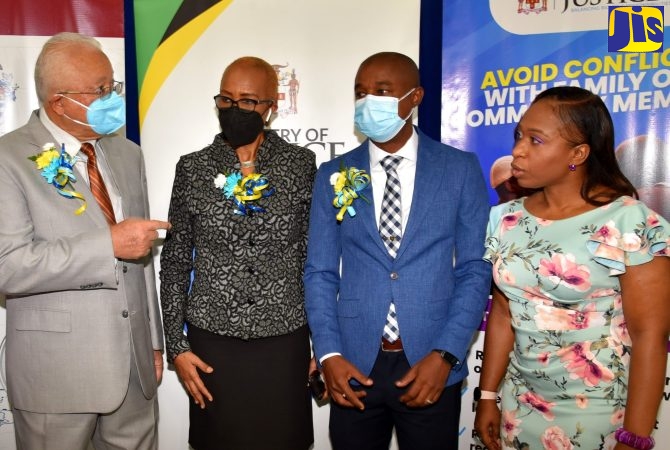In an effort to promote positive behavioural change and management of conflict within schools, 2398 participants across 81 schools were trained in conflict resolution.
The schools include 78 high and 24 primary, and were grouped under phase one of the Restorative Justice Workshops for students, teachers, and parents.
Training was conducted from May 9 to July 1 and was led by the Ministry of Justice and the Safety and Security Branch of the Ministry of Education and Youth (MOEY).
During the award ceremony held Friday (July 15) at the Jamaica College auditorium in St. Andrew, participants were recognised from across all education regions.
There, Minister of Justice, Hon Delroy Chuck noted the workshop training as vital, because “Jamaica is being torn apart by wrongdoing of all kinds.
“Within the schools, we hope that restorative justice can be taught and practised because we feel that in the schools, youngsters get into disputes and these are natural parts of the ‘growing-up process’. They need the skills to be able to resolve their differences, and avoid the use of violence,” he said.
“While we’re doing this, we hope to engage all the churches across Jamaica to engage in the restorative justice practices, and we have been in touch with the Church of God and also the Seventh-Day Adventist churches to ensure they utilise restorative justice,” he further pointed out.
Minister of Education and Youth, Hon Fayval Williams lauded the programme as one which promotes “positive relationships between peers and between students and teachers as well as pro-social behaviours through the development of social and emotional skills.
“We cannot continue to use violence as the first resort,” she emphasised.
Against this backdrop, Director (Acting) for the Safety and Security Branch in the MOEY, Richard Troupe, said phase two of the programme will begin in the last week of September with 104 schools.
“We’ll begin training and we will do this every term because we’re committed to impacting every single school,” he said.
He encouraged educators and school leaders to use the restorative justice centres as a tool to treat with student conflicts, “because, beyond school suspensions and exclusions, we want to heal our community.”
The Ministry of Justice has established 20 restorative justice centres across the 14 parishes on the island. The centres are available to assist parties to resolve conflicts and the aftermath, in a positive and law-abiding manner.


